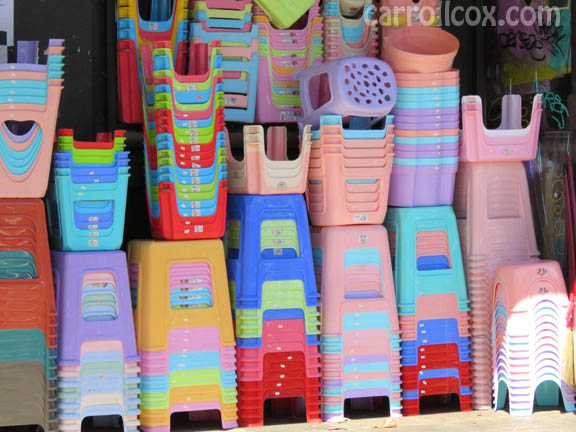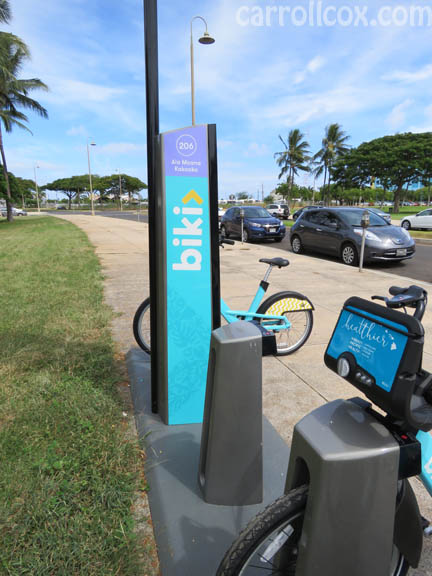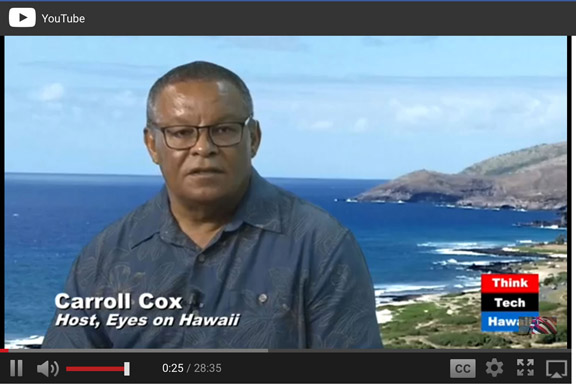|
August 13, 2017, Honolulu, Hawaii.
Carroll discusses Biki bikes with guests Rod Tam, a former state senator, and Dave Moskowitz from Waikiki. Yes, we all agree, bicycles can be "the solution to pollution" as stated by a number of environmentalists. But, once again, the manner in which the program was set up by the city is very suspicious and may lead to some bad precedents for setting
up more backdoor projects. As Carroll told us last week, in 2014 Mike Formby, director of the Department of Transportation Services at the time, incorporated a nonprofit organization named Bikeshare Hawaii. Bruce Copa, Abercrombie's Chief of Staff, Ray Soon and other government employees are on, or were on the board. Why? Looks like millions of dollars of federal money was available for the taking, the city wanted bikes, and the city felt a nonprofit
would be the way to go, giving them full control over the project. But, the "million of dollars" was for chronic disease prevention and improving the health of the state (see DOH website). It can be argued bikes can do this, but not when only set up from Waikiki to downtown, where they can more easily be used by tourists. Maybe bikes would be more helpful if set up on the Waianae Coast where traffic is so bad. Perhaps they can be used as an easier way to get to the beach for even more exercise than contributing to the traffic jam? Is it because they would
not make money there? If Bikeshare Hawaii is nonprofit, why does it even matter?
The bigger problem is the many questions of ethics and conflicts of interest involved in how Biki was set up. For example, Formby set up a way the bike racks all over our city sidewalks and streets could be exempt from Environmental Impact Statements. But, not only do they block sidewalks, they take away parking spots and revenue from parking meters. Furthermore, there was not an RFP process for other organizations or companies to
get involved. After doing research on ethics complaints and obtaining documents, Carroll has filed an ethics complaint.
Dave tells us how bad the bicycles are in Waikiki. Not only are bike racks blocking the sidewalks, there are no instructions or rules available so riders are on the sidewalk. Experienced
riders are a danger, but inexperienced riders can be particularly dangerous when weaving in and out of pedestrians. Also, Dave tells us there is a $1,200 charge to your credit card if you do not return a bike, but it is only noted on a small sticker on the handlebars. Carroll asks questions about liability and insurance for the bikes and users. He also notes the involvement of Secured Bikeshare, a company with a Singapore address that recently moved to
Hawaii, who now maintains the system as Secured Bikeshare Hawaii.
Once again, a good project has been implemented very badly.
Link to Carroll's last week's show discussing Bikeshare Hawaii.
Link to the Bikeshare.org website here.
|
|
-
-
 -
- Step
up and take a stand
-
-
-

|

